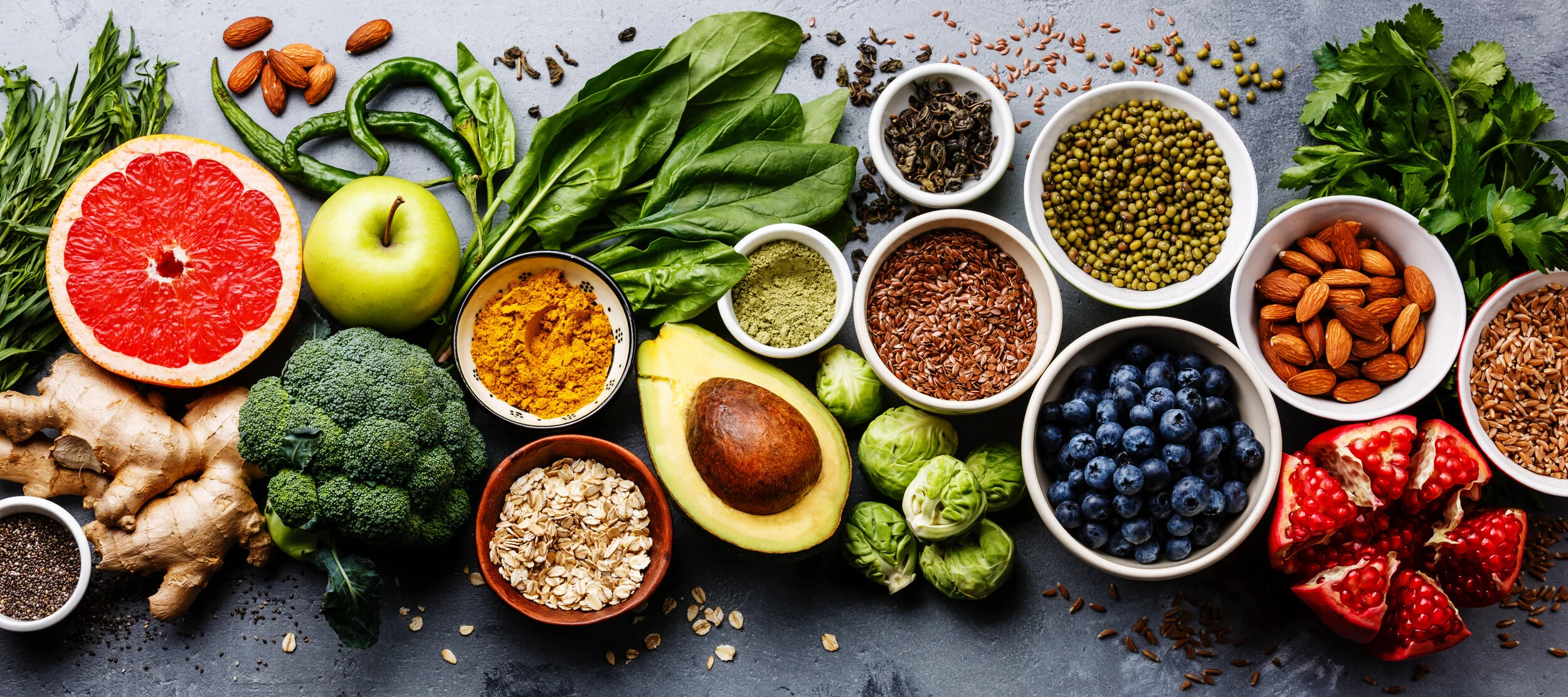
Integrating Nutrition and Lifestyle for Mental Health: A 2025 Update
Mental health disorders such as depression, anxiety, bipolar disorder, and ADHD are prevalent, affecting millions globally. Recent research underscores the significant role of nutrition and lifestyle interventions in managing these conditions, offering complementary approaches to traditional pharmaceutical treatments.
Mental health disorders such as depression, anxiety, bipolar disorder, and ADHD are prevalent, affecting millions globally. Recent research underscores the significant role of nutrition and lifestyle interventions in managing these conditions, offering complementary approaches to traditional pharmaceutical treatments.
🌱 Nutritional Psychiatry: A Growing Field
Nutritional psychiatry examines how dietary patterns and nutrients influence mental health. Studies indicate that dietary interventions can alleviate symptoms of depression and anxiety. For instance, a meta-analysis revealed that dietary interventions significantly reduced depressive symptoms compared to control conditions.
Furthermore, a comprehensive review highlighted the potential of specific nutrients, such as omega-3 fatty acids and B vitamins, in managing mood disorders.
🥗 The Mediterranean Diet: A Protective Pattern
The Mediterranean diet, rich in fruits, vegetables, whole grains, healthy fats, and lean proteins, has been associated with improved mental health outcomes. Adherence to this diet correlates with lower levels of depression and anxiety.
Conversely, high consumption of ultra-processed foods has been linked to increased risk of mental health issues, emphasizing the importance of dietary choices in mental well-being.
🍬 Sugar and Addiction: Implications for Mental Health
Excessive sugar intake can impact brain chemistry, potentially leading to addictive behaviors. Research suggests that sugar consumption activates dopamine and opioid pathways in the brain, similar to addictive substances.
Additionally, low dopamine levels associated with sugar withdrawal may contribute to cravings and continued consumption, highlighting the need for mindful dietary habits.
💤 Sleep: A Cornerstone of Mental Health
Quality sleep is crucial for mental health. Studies indicate that sleep disturbances are bidirectionally related to mood disorders, with poor sleep contributing to and resulting from conditions like depression and anxiety.
Implementing good sleep hygiene practices—such as maintaining a consistent sleep schedule, creating a restful environment, and limiting screen time before bed—can improve sleep quality and, by extension, mental health.
🏃♀️ Exercise: Enhancing Mood and Cognitive Function
Regular physical activity has been shown to elevate serotonin levels and regulate stress hormones, contributing to improved mood and cognitive function. Engaging in enjoyable activities, setting achievable goals, and exercising with a partner can enhance adherence and overall mental health benefits.
🧠 Integrating Approaches for Optimal Mental Health
Combining nutritional interventions with lifestyle modifications can accelerate therapeutic outcomes. For example, a ketogenic diet has shown promise in helping stabilizing mood and cognitive function in individuals with bipolar disorder.
Collaborating with healthcare providers trained in nutritional and integrative interventions can help individuals identify essential nutrients, develop personalized dietary strategies, and incorporate lifestyle changes to support mental health.
If you are interested in taking the next step in your mental and physical health, I have training in nutritional and integrative interventions. Give our office a call at 309-713-1485 or email info@summitfamily.net. I look forward to finding solution together!
Sources:
Opie RS, O’Neil A, Itsiopoulos C, et al. The impact of whole-of-diet interventions on depression and anxiety: a systematic review of randomised controlled trials. Public Health Nutr. 2015;18(11):2074-2093. PMC6455094
Jacka FN, O’Neil A, Opie R, et al. A randomised controlled trial of dietary improvement for adults with major depression (the “SMILES” trial). BMC Med. 2017;15:23.
Harvard Health Publishing. Mediterranean diet may help ease depression. 2023.
Hall KD, et al. Ultra-processed diets cause excess calorie intake and weight gain: an inpatient randomized controlled trial of ad libitum food intake. Cell Metab. 2019;30(1):67-77.
Lenoir M, et al. Intense sweetness surpasses cocaine reward. PLoS One. 2007;2(7):e698.
Kessler RC, Bromet EJ. The epidemiology of depression across cultures. Annu Rev Public Health. 2013;34:119-138.
Stanford Medicine. Sleep and mental health: What the science says. 2025.
Verywell Mind. What is sleep hygiene? 2024.
News-Medical.net. UCLA Health launches study on ketogenic diet for bipolar disorder in youth. 2025.
The Guardian. Metabolism and diet linked to bipolar depression, scientists say. 2024.
Nutritional and Integrative Interventions
How often do we read these mental health statistics and think that the only “cures” are pharmaceutical interventions?
Anxiety disorders are most common mental illness in US affecting 40 million adults (ADAA)
Depression affects 322 million adults worldwide
1 of every 6 adults will suffer depression in their lifetime
Nutritional and Integrative Interventions
(Depression, Anxiety, Bipolar and ADHD)
How often do we read these mental health statistics and think that the only “cures” are pharmaceutical interventions?
Anxiety disorders are most common mental illness in US affecting 40 million adults (ADAA)
Depression affects 322 million adults worldwide
1 of every 6 adults will suffer depression in their lifetime
Nutritional psychology is an emerging field that outlines how nutrients can affect mood and behavior. Many clients will see a reduction in symptoms when integrating non-pharmaceutical interventions to treat depression, anxiety, bipolar disorder and even ADHD.
It is possible to accelerate your therapeutic results by viewing the whole person:
Food: the good, the bad and the fake
Stress: A holistic approach
Exercise: Elevate serotonin and regulate stress hormones
Sleep: The 4 habits critical to sleep
Research shows that Mediterranean lifestyle--diet, physical activity, and socializing helps improve mental health/depression.
Sugar addiction--sugar as a substance releases opioids and dopamine which suggest an addictive potential
Fake nutrition--alcohol, junk food, snacks, sugar, soft drinks, white foods
Stress management--meditation, exercise, deep breathing, mindfulness, music, “ditch the screens”
Exercise--pick activity you enjoy, find a buddy, set a goal, start out slow
4 Sleep habits--adults need 7-9 hours of sleep in a dark, cool room. No caffeine after noon. Avoid electronic devices one hour before bedtime. Create a bedtime ritual.
“Let food be your medicine and medicine be your food.”---Hippocrates
S.A.D.--Standard American Diet is not recommended
High--Meat at center of plate, processed foods and simple carbohydrates
Low--healthy fats, fruits and vegetables
Healthy fats are important for brain health--avocado, coconut oil, EVOO, ghee
Proteins are important for brain health--fish, grass fed beef, eggs, nuts, seeds legumes
You can greatly increase your therapeutic results by addressing core physical and nutritional needs with a qualified counselor. You will discover the nutrients most essential to healthy brain function, treating depression and anxiety, and learn simple strategies that can be integrated with pharmaceutical interventions.
We have just scratched the surface here. There is so much more research and information about nutrition and mental health available. Professional counselors want to help you decipher and incorporate these practices into your life.
If you are interested in taking the next step in your mental and physical health, I have training in nutritional and integrative interventions. Give our office a call at 309-713-1485 or email info@summitfamily.net. I look forward to finding solution together!




